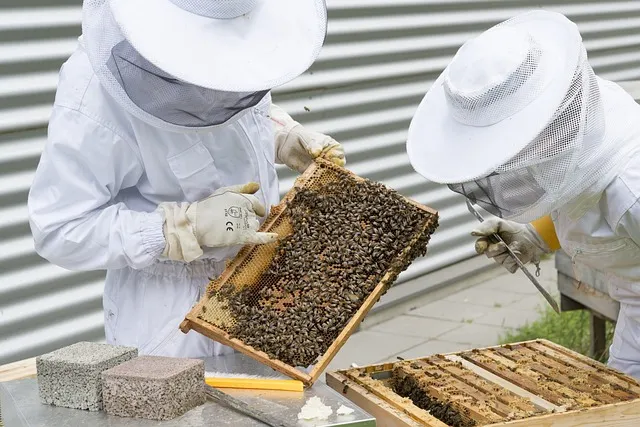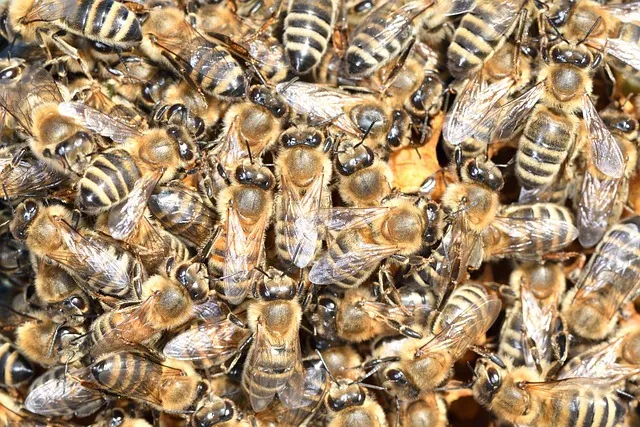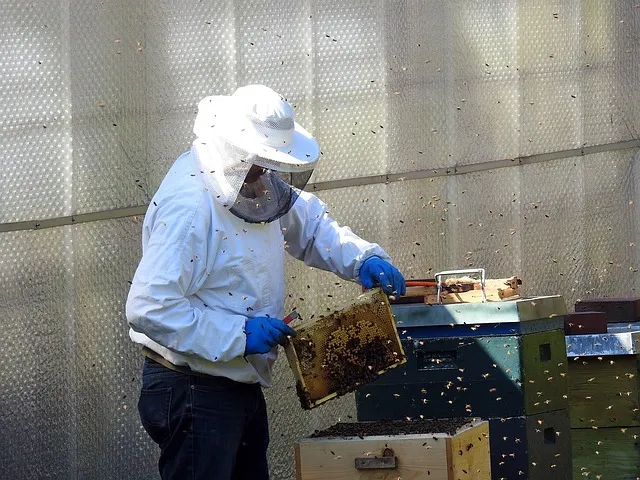Do beekeepers develop immunity to bee stings?
Beekeepers get stung by honey bees. They can’t escape this part. This is one of the prices to pay for the fantastic hobby that is dear to many. Thankfully, only a small percentage of the total population( about 5%) is allergic to bee stings. Beekeepers usually check on their level bee stings of reaction before they start the hobby. Even if someone is not allergic to bee stings, there may be increased reactions depending on the number of bee stings, the amount of venom released into your system, and the location of stings.
Similar Articles you may like to read –
What Does a Bee Sting Look Like the Next Day?
How many bees can kill a human? if sting together
How to tell if your dog got stung by a bee?
Can a queen bee hurt you? What happens if a queen bee stings you?
Do beekeepers develop immunity to bee stings?
People react differently to bee stings. In worst cases, they can cause anaphylactic reactions in people who are allergic. You may also respond differently on various occasions. On one occasion; you may not react to a bee sting, while on another, you may need medical attention.
Some beekeepers will develop immunity to bee stings, while others become more sensitive to them. A serious reaction on a single occasion does not mean you will have similar outcomes in the future. Some body parts ( face, nose, lips, and eyes) are more sensitive to others. It is good to note that bee stings are harmless to most people, and they are part of the daily life of a beekeeper.
Most experienced beekeepers get used to bee stings. While they can feel pain just like anyone else, they become less concerned about it. Some of the beekeepers who are exposed to beestings will develop immunity. They will get swelling and itch until immunity is attained. After this, the reaction to stings is reduced or disappears completely. This immunity can diminish in a person if they are not exposed to stings and need to be built again. This mainly happens in the winter season.
What happens when a bee stings you?
When a bee stings you, it pierces your skin with its barbed stinger and releases a venom known as Apitoxin. The venom proteins affect your immune system and the skin cells. Since the stinger is barbed, it cant withdraw it from your skin and leaves it there. It continues to pump more venom into your skin. That’s why it is advisable to remove the skin as quickly as possible once you are stung. Some venom leaks out on the skin’s surface. This provides a pheromone alert to other bees in the vicinity. The bee herself will die after stinging you, but the stinger continues to pump more venom into your body. This can continue for up to 10 minutes.
How do beekeepers avoid bee stings?
There are various ways to reduce the chances of bee stung. These include wearing protective clothing, using a bee smoker, opening the beehive when the weather conditions are conducive, and gently handling the hives and frames.
For the protective gear, most experienced beekeepers just wear a face veil to avoid stings on the face. Others, especially beginners wear a full suit. The bees smoker generates smoke which is used to calm the bees and mask their pheromones. Beekeepers usually puff some smoke into the hive before opening it. When stung, they will smoke the area to cover up the pheromones. The best day to open the hive is when the weather is warm and calm. Bees are usually aggressive in cold, windy, and rainy weather.
More articles you may like to read –
What smell do bees hate?
Do Bees Recognize Their Owners?
Do Honey Bees Stay In The Same Nest Every Year?
What Is The Biggest Problem For Bees? Threats To Honeybees
Are there benefits of being stung by honey bees?
Beekeepers live longer in comparison with other occupations. The bee products (honey, pollen, and royal jelly) have unmatched health benefits. Besides the products, it is also essential to be stung. The bee venom injected into the skin can release a natural product that helps to treat rheumatoid arthritis, multiple sclerosis, and other atrophic diseases. Bee venom possesses both inflammatory compounds and anti-inflammatory compounds. These are associated with both positive and negative effects. Venom also has the potential to boost immune health. It can also alleviate allergic conditions such as asthma. To enhance immunity, some people intentionally allow bees to sting them periodically.



